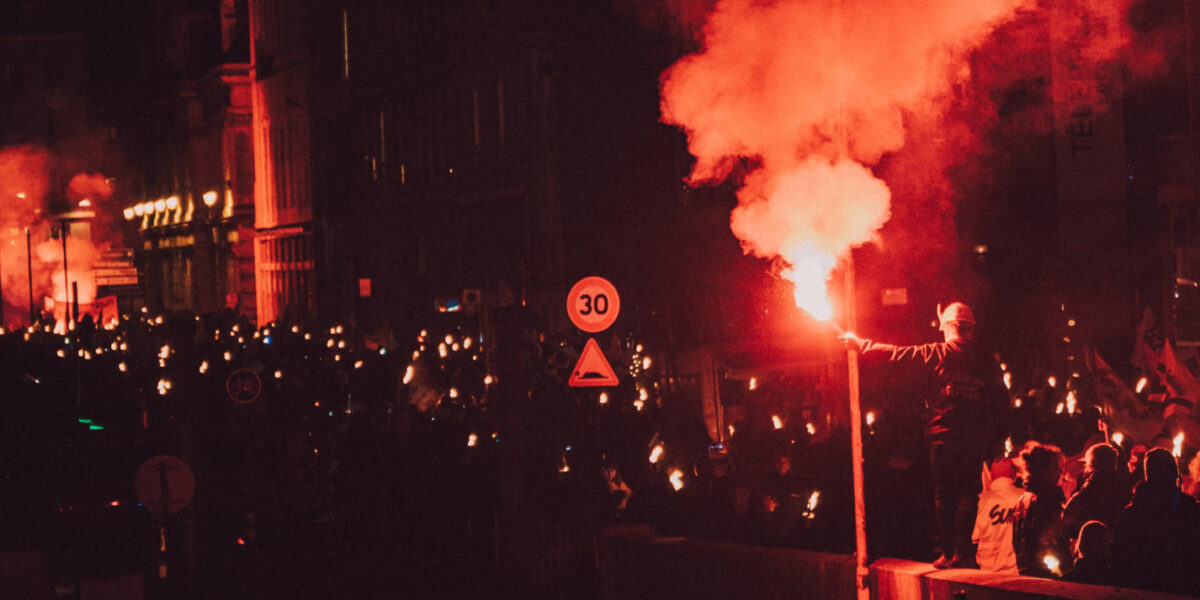Riots have been taking place in France for the last few days after the cold-blooded killing of a 17-year-old Algerian boy by the Police. The pictures of social unrest across France now seem more like a rebellion against the French State and its security apparatus. Some have even called it a civil war.
The root cause of the riots is a failed state policy and policing of French racial and religious minority groups, notably those of Maghreb ethnicity. Ever since colonial rule, French race relations policies are predicated on cultural, racial, and identity suppression and supremacy. Everyone must become a version of the French and European, and that must be imposed by force by the state and its security apparatus. There is only one identity for racial and religious minorities in France and that is French, and one religion which is secularism.
Speaking out against the French state and societal racism or anti-Islam, and anti-Muslim prejudice is considered a sign of radicalism and extremism. At the last presidential election in 2022, Marine Le Pen (an anti-migrant, anti-Muslim far-right populist) won 41% of the vote coming second to President Macron. That election, like many others before it, had a focus on migrants and Muslims. So, French society has become more extreme and intolerant in its attitude to those of migrant origin.
At the state level, the French government has been trying to enforce a French state version of Islam on Muslims, closing institutions, and policing dress codes, cultural habits, expressions of Islam, and even political expression (for example in support of the Palestinian cause). Criticism and campaigning by French and Muslim activists against racial and cultural oppression are treated as a sign of left-wing extremism to be rooted out.
France is fast becoming an intolerant and fascist, albeit democratic state. The estimates of Muslims, especially youth in prison are absurdly high, estimates put the figure between 27-50%, whilst Muslims make up only 8% of the French population (the French prison does not record prisoners by religious identity so estimates are based on those who take meals in Ramadan). The unemployment rate of Muslims in France was estimated to be 14% by Deutsche Welles a German Newspaper in 2020. However, the figures could be much higher for the prison population and other deprivation indicators. The underlying issue is that the French approach to ethnicity and social equality makes ethnic and religious minorities invisible. The French constitution’s approach to equality means that it is legally prohibited from collecting data on the racial, ethnic, or religious background of citizens. That results in the economic conditions of its ethnic groups never become an underlying issue of social progress or unrest and breeds resentment among both minorities and the majority, who see the former as a social and criminal problem who never “integrate”.
The French state and police institutionalise racism and injustice among minorities.
Ethnic groups and Muslims suffer discrimination and live in segregated ghettoes, and their youth suffer persistent harassment and brutality. The race riots that are now taking place are a consequence of the French state’s long-standing policies and constant vilification of Muslims and descendants of migrants by politician’s, media and far right. Blaming social media and nefarious forces won’t solve these deep-seated underlying issues. A changed approach is needed.
In Britain, we have been through this phase in community relations. In the 1980s Britain witnessed race riots (some called them a rebellion against the state and police) in major cities with black populations. Places like Toxteth and Brixton were in flames. The disorder led to a government public inquiry into the causes. The Lord Scarman report identified the underlying social and policing causes of the riots. Scarman was criticised by some for “justification” of the disorder. Many recommendations were never implemented. It was not until 1999 with the tragic death of Stephen Lawrence and the Macpherson report that institutional racism among the police was identified as an issue.
It is interesting that Western states support protests in foreign countries by people, even justifying the violence that often follows as a rebellion against oppressive state policies and calls for government change, most recently exemplified by protests in Iran. Yet when it comes to their own countries, protests and violent disorder are seldom seen in the context of oppressive state policies and policing.
It is unlikely that France will go down the British road of trying to get to the bottom of social deprivation and understanding racism and move towards a multi-cultural accommodation (even in Britain attempts are being made to move toward a monocultural hegemony). Hence, we are likely to see more state persecution of racial minorities and mass social disorder on a large scale in the future.



Leave a Reply